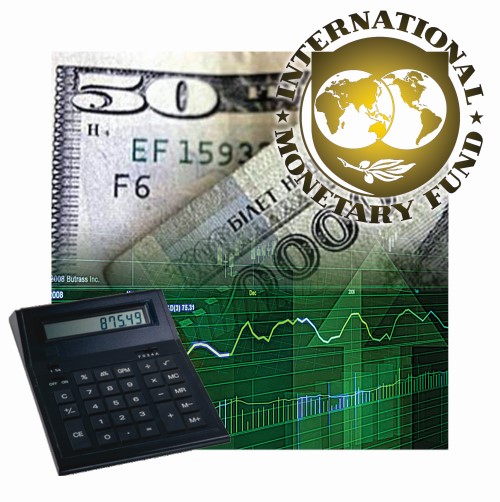
The IMF representatives state that Belarus cannot receive any further credit without structural changes. Why are they so insistent on pressing us for reform despite the fact that Belarus has paid its debts on time?
In comparison with some other European states, Belarus appears an exemplary and reliable borrower. This spring, it paid back a major loan, including interest on it, in full. Unlike other countries, it didn’t ask to cut a share of the debt and interest rates, while prolonging the payment schedule. Moreover, from January-May 2015, the Government’s accumulated state debt (inner and outer obligations with guarantees accounted) decreased by $739.8m, totalling $21.5bn (or 39.1 percent of the annual GDP). The sum of the outer debt (including guaranteed obligations) was $14.8bn, or 27 percent of GDP. These figures meet the terms of the Maastricht Treaty, which envisages no more than 60 percent of the GDP being accountable to loans. Figuratively speaking, Belarus can now ask Greece, with its $350bn debt, to leave the European zone and to accept us instead. The Fund is encouraged to see our budget balanced and our payment balance sustained, in addition to sufficient levels of gold-and-currency reserves.
Are the Fund’s conditions acceptable to us?
We should not be afraid of structural reforms. They are needed to enhance the competitiveness of our economy in the medium to long term. Many decisions now taken by the Government and the National Bank comply with IMF strategy. Among them is the pegging of salary growth rates to labour efficiency and the transition to a more flexible system of currency rate forming, aimed at lowering inflation. It’s always possible to negotiate on the speed, order and intensity of reforms. I personally see it as unfeasible to conduct full privatisation at present. It would be a sensible idea however, to privatise loss-making farms and enterprises. We need to increase the level of direct foreign investments that we attract, whilst simultaneously improving investment legislation and our business climate. Of course, we can support privatisation and increase tariffs on communal services, but this must be done simultaneously with the enhancement of competition in this sector. It’s much easier to raise prices rather than cut expenses.
On the one hand, the IMF experts propose that we liberalise prices and tariffs but, on the other hand, they say we should not increase salaries. However, under such a scheme, standards of living will definitely fall…
It’s sometimes important to sacrifice a short-term decline in standards to ensure qualitative economic results in the medium and long term. Structural market transformations must be accompanied by positive changes in society. We need a forward thinking attitude from the population to the reforms, not just new shiny projects and technologies. I’m not against increasing unemployment allowances but we should not go too far in this direction. The state needs to avoid paternalism and inspire people to make money independently, while changing their mentality and learning something new. When I see lights burning day and night in our entrance halls, I can’t but think that some of our people have been spoiled with state support.
Do we really need this credit? Can we improve our situation without foreign loans?
If we can’t agree a loan there will not be a major disaster. The IMF money is a good resource to use from the point of view of its cost, loan term and the establishment of a financial cushion of security. It helps us to improve our foreign currency reserves and is beneficial for the financing of new projects. Moreover, successful co-operation with the IMF is a positive signal to all foreign investors that they can rely on our country. In our discussions however, we must put the needs of Belarus to the fore. I think a mutually acceptable solution will soon be found, which would benefit both our economy and society.
MT’S REFERENCE:
According to the Finance Ministry data, as of June 1st, 2015, the country’s foreign debt was $12.7bn.
In 2015, Belarus borrowed from:
Russia’s Government and banks — $328.9m
China’s banks — $149.8m
International Bank for Reconstruction and Development — $9.4m
In 2015, Belarus paid loans to:
Russia’s Government — $125m
EurAsEC Anti-Crisis Fund — $88.3m
China’s banks — $80.5m
IMF — $75.9m
International Bank for Reconstruction and Development — $7.5m
By Yevgeny Kononov











